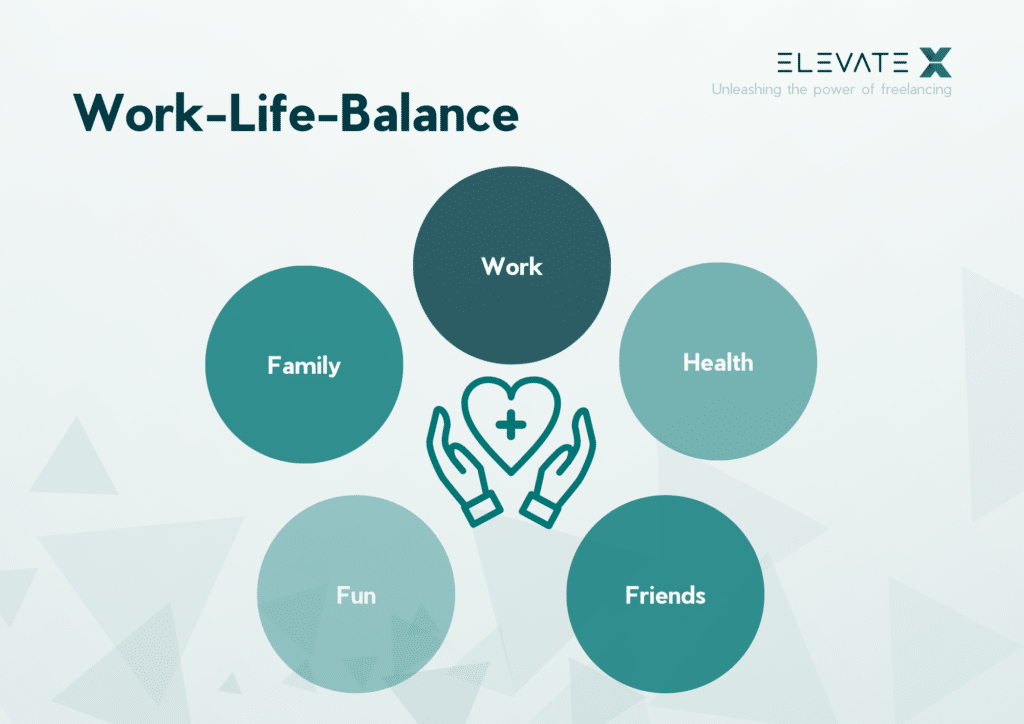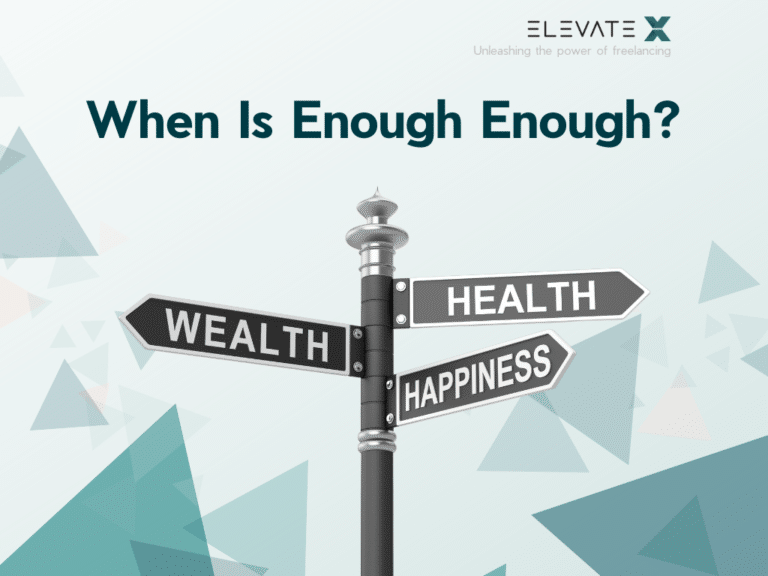Entrepreneurship often requires high resilience and endurance. In the constant pursuit of success, many entrepreneurs neglect their own health. This frequently leads to burnout and serious mental health issues. How much is enough, and how can balance be found? Here, you will find valuable insights and advice to help you stay healthy and balanced as an entrepreneur.
Introduction
Entrepreneurship comes with many challenges, but few are as pervasive as the mental strain. The pursuit of success can blind entrepreneurs to their own needs, leading to a cycle of stress and overwhelm. Many ignore early warning signs, believing they can take care of their health later. However, a good balance between work and life is not just a luxury but essential for sustainable success. When the balance tips, productivity often suffers, as does the overall health of the business.
For many, “balance” sounds like a luxury only a few can afford. But in reality, it’s the key to a healthy and fulfilling entrepreneurial life. The question every entrepreneur must ask themselves is: “When do I have enough?” This isn’t just about material possessions but about inner peace. In this article, we’ll share valuable insights and practical tips for finding and maintaining your own balance. Because at the end of the day, it’s not just about building a successful business but leading it with health and joy.
KEY POINTS
- A healthy work-life balance is crucial for sustainable success and requires conscious planning and self-care.
- Early recognition of burnout symptoms and regular breaks are essential to remain healthy and productive in the long term.
- Satisfaction and success should not only be measured by material goals but also by inner peace and personal well-being.
The Challenge of Entrepreneurship
The life of an entrepreneur often means being available 24/7 and constantly tackling new challenges. The responsibility for the well-being of your own business weighs heavily and leaves little room for relaxation. The intense workload and the constant pressure to deliver top performances come with consequences. Your heart races, sleep becomes restless, and weekends are no longer for relaxation but just another opportunity to catch up on unfinished tasks.
Many entrepreneurs feel the early signs of burnout but often don’t take them seriously. It’s a mental pitfall driven by the belief that perseverance equals success. But this is a misconception. Endless stress and the self-imposed duty to never appear weak lead to the opposite result. Studies show that entrepreneurs are particularly prone to burnout. According to a survey by the Austrian Chamber of Commerce, nearly 60% of surveyed entrepreneurs reported feeling regularly stressed.
The constant striving and high self-demands leave little room for personal needs. Family, friends, or even self-care take a back seat. This is the breeding ground for chronic stress and ultimately burnout. Instead of seeing burnout as a sign of weakness, it should be viewed as a warning signal indicating that it’s time for a change. Without a conscious balance between work and leisure, without the ability and willingness to switch off, not only is your health at stake, but also the long-term success of your business.
Recognizing the Signs of Burnout
Burnout often sneaks up unnoticed. At first, you only feel tired occasionally, but soon the exhaustion becomes chronic. Nights are restless, you toss and turn, and every moment of sleep is cherished like a rare treasure. Waking up in the morning feels like climbing a mountain. Every small task seems overwhelming, and the motivation to work on projects that once sparked passion fades away.
Emotionally, you start to distance yourself from those around you. Moments of joy with family or friends feel like duties you simply have to check off. This emotional distance is often accompanied by increasing irritability. Even small things can trigger feelings of anger or sadness. An anecdotal story from an affected entrepreneur shows that there’s often a triggering moment that opens your eyes. One entrepreneur shared how he one day simply collapsed in his office, unable to stand up because his body and mind forced him to finally rest.
Psychological symptoms range from difficulty concentrating to persistent sadness. You start doubting yourself, your abilities, and the meaning of it all. Even the smallest setbacks are seen as personal failures, which only increases the pressure. These symptoms are a clear call for help. They are the point where your well-being must be placed above professional ambition.
Burnout is more than just a temporary feeling of exhaustion. It demands attention and action. Recognizing and taking early warning signs seriously is the first step to returning to healthy and balanced entrepreneurship.
Strategies for Preventing Burnout
To prevent burnout, it helps to set clear boundaries and stick to regular working hours. This is easier said than done, especially when deadlines are looming, and your email inbox is overflowing. Breaks are not a waste of time but an investment in your own performance. Regular exercise and physical activity can also work wonders. It doesn’t have to be a marathon, but a walk in the fresh air can often unleash new energy and creativity.
It’s important to consciously plan leisure activities and pursue hobbies that bring joy. Whether it’s reading a good book, cooking with family, or gardening, it doesn’t matter. The main thing is that it distracts from the daily grind and recharges your inner batteries.
A strong social network is also invaluable. Talking with other entrepreneurs or friends can help relieve stress and gain new perspectives.
Sometimes, an honest conversation is all it takes to release the pressure and put your worries into perspective.
Resources like books, podcasts, and workshops on self-management and stress management offer valuable support and guidance. Educating yourself and learning new stress management techniques show proactive behavior and a willingness to change.
At the end of the day, it’s about self-care. The key is to value yourself as much as your business. Only then can you remain healthy and successful in the long run. The more you allow yourself to take breaks and care for your well-being, the more likely you are to find the balance necessary for sustainable success.
Do you need support?
Mental Health as an Entrepreneur
Mental health plays a key role in the sustainable success of an entrepreneur. Without a clear mind and emotional balance, you risk losing perspective and making poor decisions. Those who are mentally fit can better respond to the challenges of everyday business life. Stressful situations don’t become insurmountable mountains but remain manageable tasks.
Exercises and Techniques
There are simple but effective exercises and techniques to maintain mental health:
• Meditation and Mindfulness: These are two powerful tools that help calm the mind and sharpen focus. Just a few minutes of daily meditation can significantly reduce stress levels and help you concentrate on what’s important. Mindfulness means living in the present moment, consciously perceiving small moments, and finding inner peace.
Coaching and Therapy
Coaching and therapy are also valuable methods for reducing psychological burdens:
• Coaching: A professional coach can help clarify personal and professional goals and develop strategies to achieve them. The conversations provide space for reflection and new perspectives.
• Therapy: Therapy can address deeper issues and show ways to cope.
Scientific Studies
Scientific studies support the positive effects of these approaches:
• A study by Harvard Medical School shows that meditation structurally changes the brain and strengthens areas responsible for self-awareness and compassion. This not only promotes personal well-being but also improves interpersonal skills – an aspect crucial for successful entrepreneurs.
Investing in your mental health is the foundation for your long-term success and satisfaction as an entrepreneur. By integrating techniques like meditation and mindfulness into your daily routine and seeking professional help if necessary, you create the basis for a healthy and balanced life.
When Do I Have Enough?
In the fast-paced life of an entrepreneur, it’s easy to get caught up in an endless cycle of striving for more. More revenue, more customers, more success. But eventually, the crucial question arises: When do I have enough? This isn’t just about financial goals or business success but also personal satisfaction and inner peace.
Reflection is the first step. Take time to think about your personal and professional goals. Ask yourself what truly makes you happy and what successes are meaningful to you. This self-reflection helps gain clarity and create a solid foundation for decisions that benefit both your well-being and your business.
Self-acceptance is also an important aspect. Acknowledging that it’s okay not always to want more and accepting what you’ve achieved can be liberating. Setting realistic expectations relieves pressure and allows you to embrace vulnerability and recognize your limits. This process of self-acceptance can be transformative and prevent you from burning out.
Recognizing the point of “enough” also requires courage. It’s about accepting that progress and success aren’t always linear and that there are phases where pausing and enjoying are the wiser choices.
Life isn’t a race, and success isn’t defined solely by numbers. Listen to your inner self and pay attention to when you feel fulfilled and content. This balance between striving and enjoying is the key to a balanced and fulfilling entrepreneurial life.
Ultimately, “enough” means knowing when to stop and appreciate what you’ve achieved. It’s important to give yourself permission to be content and let go of the constant drive for more. This way, you find true wealth in doing and being.
Finding Balance
Finding balance in life is one of the greatest challenges for entrepreneurs. It often seems like there aren’t enough hours in the day to get everything done on the to-do list. But the secret isn’t in the amount of work done but in its quality and the ability to take breaks and recharge.
Creating a balanced work-life balance requires conscious planning and discipline. This means setting clear boundaries and sticking to them. For example, you could set specific start and end times for your workday and adhere to them without exception. It may be difficult, but this structure helps to maintain energy and motivation in the long run.
There are numerous tools and techniques to help keep track and work more efficiently. Time management systems like the Pomodoro Technique or apps that help monitor working hours are particularly helpful. These methods not only promote productivity but also allow you to take deliberate breaks and clear your mind.
Another crucial point is to make time for activities outside of work that bring joy and relaxation. Whether it’s sports, a creative hobby, or simply spending time with family, these moments of rest are not optional but essential to maintaining inner balance and being sustainably successful.
Successful entrepreneurs who have found balance often report how important it is to truly disconnect and create mental space. Such personal stories show that it’s possible to be successful without completely burning out. They inspire and encourage others to strive for their own balance.
In the long run, a healthy balance leads to higher quality of life and more satisfied, productive work practices. It may be a continuous process that requires adjustments, but the result is worth it. When you find your balance, you not only achieve professional success but also lead a life that is fulfilling and meaningful.

Staying Consistent
The pursuit of balance and mental health doesn’t end with a single success. It’s a continuous process that requires regular self-reflection and adjustment of strategies. You need to regularly take time to assess what is working well and what isn’t. This might involve creating small rituals where you reflect and realign your priorities.
Continuity is key. Aim to routinely invest in your mental and physical health measures. Set achievable goals and stick to them, even when life gets hectic. This means actively taking breaks to rest and recharge, rather than rushing through the day. It also involves maintaining the techniques that work for you, whether it’s meditation, regular exercise, or talking with a coach.
Another important aspect is community. Support and exchange with other entrepreneurs or like-minded individuals can be inspiring and motivating. In networks and communities, you often find useful advice and emotional support that helps you continually work on your balance.
Finally, commitment to your health should not be seen as an additional task but as an integral part of your life. View it as an ongoing investment in your well-being and success. Staying consistent means adjusting course when necessary and remembering why this balance is so crucial for you and your entrepreneurship. Consistently nurturing your mental and physical health ensures that you not only survive in the long run but thrive.
Conclusion
Entrepreneurship can be an exhilarating and rewarding journey, but it also comes with immense challenges. The constant pressure and intense workload can easily lead to burnout and serious mental health issues. It is crucial to counter these dangers early on.
Preventing Burnout
Preventing burnout begins with consciously establishing structures. Fixed working hours and regular breaks are crucial. The importance of hobbies and leisure activities should not be underestimated either. These simple strategies can make a big difference and contribute to maintaining mental health.
Caring for Mental Health
Caring for mental health is not only a personal concern but also a key factor for business success. Techniques like meditation, mindfulness, coaching, and therapy offer valuable support. Scientific studies confirm the positive effects of these approaches and underscore their necessity.
Self-Reflection and Realistic Expectations
Knowing when enough is enough requires self-reflection and setting realistic expectations. This insight helps break the constant drive for more and find a healthy balance. A balanced work-life balance is not a utopia but an achievable reality that can be implemented through consistent planning and discipline.
Importance of Continuity
The key lies in continuity. Regular self-reflection and the willingness to adjust strategies are essential. Support from networks and communities can be both inspiring and valuable. In the long run, this leads to not only a successful but also a fulfilled and healthy entrepreneurial life.
Implement the strategies presented, care for your mental health, and find your balance. This will create the foundation for sustainable success and quality of life. You have the power to achieve it.
Set fixed working hours and plan regular breaks. Use time management techniques like the Pomodoro Technique to work efficiently. Avoid neglecting your free time—hobbies and time with family are important to prevent burnout and remain productive in the long term.
Burnout manifests as chronic exhaustion, sleep problems, and emotional distance. If you notice these signs, regular breaks, mindfulness exercises, and, if necessary, professional help are essential to counteract them.
Regularly reflect on your goals and achievements. Learn to find satisfaction in what you have already accomplished and set realistic expectations. Recognize that success is not only defined by material achievements but also by inner peace.








